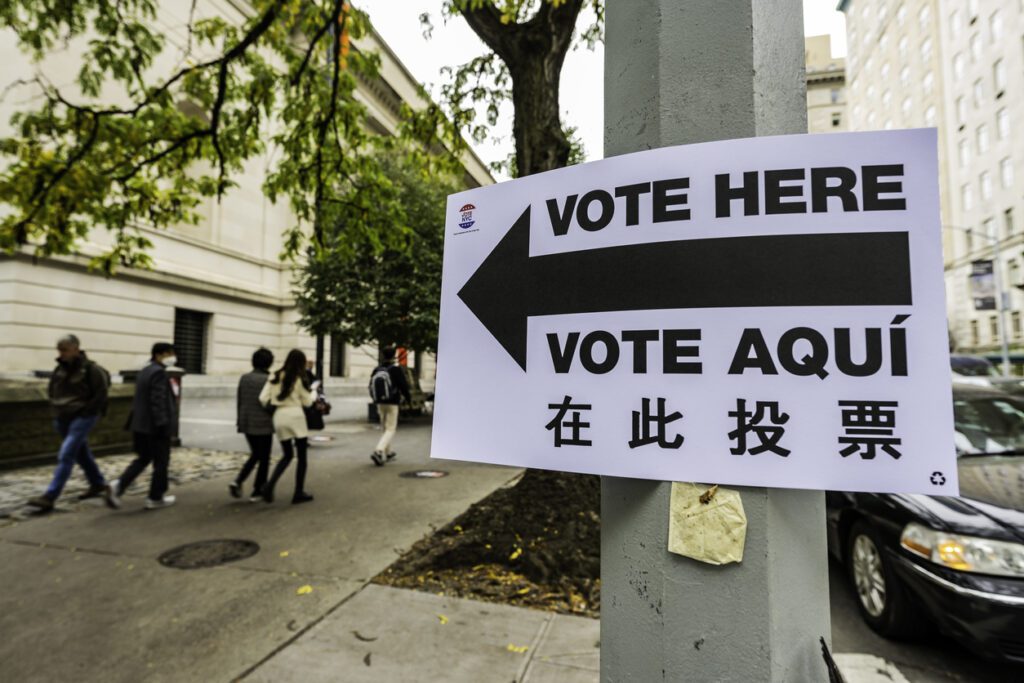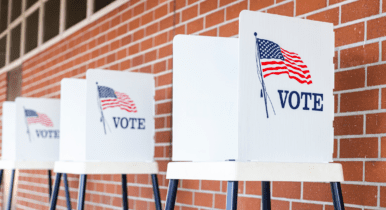Are Non-White Voters The Canary in the Coal Mine for Democrats?


Image Credit: Christine McCann
Electoral trends are rarely just fleeting moments. Sometimes they’re like canaries in the coal mine warning of deeper shifts that are soon to surface.
For the Democratic Party, recent polling offers one such vital sign: the relatively weak support from non-white voters, especially younger Black Americans, as 2024 looms.
The gravity of the situation is such that recent polls, including an exclusive meta-analysis (an analysis of multiple polls) by Nate Cohn of the New York Times, suggest that Democratic political support among Black voters has plummeted to the 60s and 70s — a seemingly high percentage, but far off from historical norms. Such a drastic dip is more than just a statistical anomaly, or a temporary dip, it’s a beacon signaling a broader disillusionment that President Biden and his party need to address head on.
The New York Times/Siena College polling offers more insights into this. Over the last year, while Biden leads with Black registered voters with a margin of 72 percent to 11 percent. This is a stark contrast to his 87-12 lead over Donald Trump in 2020. These aren’t mere percentages — they encapsulate a growing chasm between the Democratic Party’s offerings and the aspirations of a community that’s been historically loyal to them — unfailingly so. Since the passage of the Civil Rights Act in 1964, more than 90 percent of Black voters have continuously rallied behind Democratic candidates from the top of the ticket on down.
Hispanic voters, another historically robust support base for Democrats, mirror this trend. The data indicates that Biden’s standing among Hispanic voters is wobbly, 47 percent for Biden and 35 percent for Trump, especially when compared to the ground he held in the run-up to the 2020 election.
We don’t want to overstate the case, but these trends should be viewed as a wake-up call.
The impact of voter enthusiasm is also a critical measure. The option for the majority of disillusioned voters isn’t just flipping sides and voting for the GOP, rather it’s the choice of political silence – abstaining from voting. This was evident in the last midterm election, where Black participation hit some of the lowest levels in decades.
The racial turnout gap and its relation to Democratic support are intricately linked. The precedent is clear: when Black voters feel disconnected from Democratic ideals, they often stay away from the ballot boxes. Case in point, Florida’s 2022 governor’s race.
But more importantly in this divided environment, low turnout from such a historically unwavering base can tilt the scales dramatically in razor-tight races.
Compounding this issue is Biden’s dwindling popularity among younger voters of color and those without a solid, consistent voting history. Young people of color in America, once deemed the champions of Democratic causes, now appear less certain.
Their evolving priorities, experiences, and perspectives might diverge from earlier generations. The Democratic leadership must realize that while their message may resonate with the veterans of the Civil Rights movement, it might sound off-tune to the ears of a Gen Z’er worried about college debt, climate change, or racial justice in a post-George Floyd world.
The silver lining is that the election is still a year away. This period offers Democrats a precious window — a chance for introspection, dialogue, and reconnection with its non-white voter base. Efforts need to be invested in understanding the root causes of this decline. Is it policy? Is it representation? Or perhaps, it’s a feeling of being taken for granted?
The task ahead for the Democratic Party to ensure a robust showing in 2024 is to engage in active, sincere dialogue with its core base constituencies — or at least ask the right questions to understand their evolving concerns and then craft messaging to resonate with them. Non-White voters require continuous political engagement from Democrats — not just GOTV activities in the closing hours of the polls being open.
Bradley Honan and Elisabeth Zeche are partners at the Democratic polling and data analytics firm Honan Strategy Group. Honan is also Co-President of the New York Metro Chapter of the AAPC.


